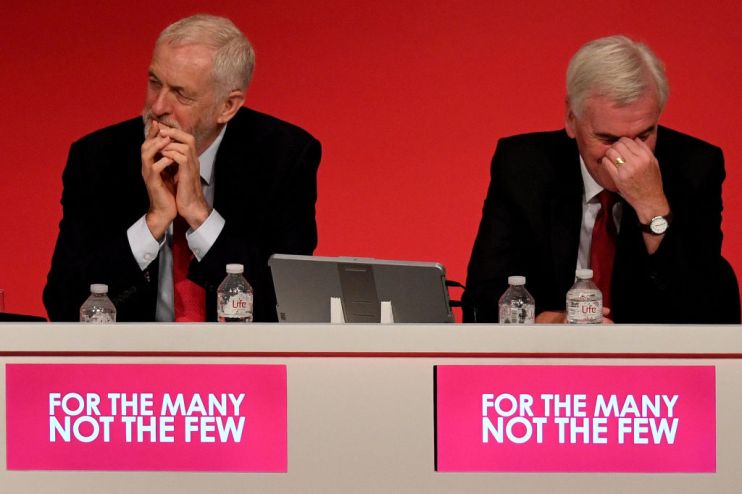There’s something important that Corbyn still needs to learn from Tony Blair

To say that the Labour party conference hasn’t been going quite as the leadership might have intended would be something of an understatement.
There have been the usual volcanic rows about Brexit, an abortive coup against deputy leader Tom Watson, the resignation of Jeremy Corbyn’s policy chief with a statement machine-gunning the leader’s most senior aides, and open leadership flirtation from multiple shadow cabinet members amid rumours that Corbyn himself is planning to pack it all in.
Amid all this, the party’s policy shift on education has been slightly overshadowed. But it’s worth exploring, because it gets to the heart of what Corbynism is really about.
On Sunday, the party conference adopted a motion calling for the abolition and expropriation of private schools – not merely the removal of their charitable status, but the seizure of their assets for redistribution to “the many”.
The details of this exciting new policy were left tantalisingly unclear. How exactly does Labour intend to make it illegal to educate your children at establishments not controlled and funded by the state?
Is there an age cut-off, or will private nurseries be banned too? Or universities? Faith schools? Sixth form colleges? Private tutors?
It’s telling that shadow chancellor John McDonnell reportedly pleaded with activists that, while he completely agreed with their aims, he didn’t want them to actually pass the measure because it would be, you know, kind of illegal.
But the whole “ban private schools” thing, while monumentally illiberal, isn’t actually that interesting – it’s just the hard left doing the hard left.
More noteworthy in some ways was the commitment the previous day to shut down Ofsted – because of the stress that an inspection regime inflicts on the poor teachers.
Apparently, the terrifying prospect of having people turn up to do an inspection every few years (maybe) is driving teachers from the profession in droves. Oh, and SATs will also be banned, again because they stress out both teachers and pupils.
Labour is admittedly proposing a replacement inspection regime, but it will be decidedly lighter-touch. The clue is in the delighted response to the announcement from the National Education Union, which has spent years campaigning for its members to effectively be able to mark their own homework.
What is so revealing here is that it reflects a common thread of Labour’s policies – that for all their talk of empowering the many, they consistently and relentlessly favour the producer interest.
On the NHS, for example, Labour is promising more staff and higher salaries. In fact, its entire health plan boils down to the words “money is no object” – there’s a wonderfully telling line in there about how service plans will be drawn up exclusively based on patient need rather than available finances.
There is very little indeed about pushing the service to perform, or how patients will be able to hold it to account.
The same is true elsewhere. Labour’s plans for share ownership actually boil down to a tax raid by the Treasury and a vast expansion of union power: if you manage a company, you will have to run everything past “the workers” (or their duly designated representatives).
Likewise the railways, where decisions will in theory made in gloriously amicable harmony between unions, ministers, community activists, managers and customers, but in reality will give the whip hand to the trade unions.
It’s not as if this is a new pattern. When Corbyn was a senior council official – in an under-explored phase of his life – he reportedly saw the essence of his job as being to say yes to the trade unions: yes to their endless demands for pay rises, and an even more enthusiastic yes to any proposals for strikes.
When any actual voters complained that, as a result of the subsequent industrial action they couldn’t get their children into school because of the disruption, or that the streets were filled with uncollected litter, he was supremely unconcerned.
There is a beautiful irony here. For Corbyn and his team, the figure that sits highest in their demonology is Tony Blair.
Yet at the heart of Blairism was a concerted attempt to work out how you could make public services work better for the people actually using them. Many of the answers turned out to be wrong, but at least they were trying.
For all that they consider themselves far more compassionate, the Corbynite agenda instead has a far more regressive philosophy at its heart: that nothing is too good for the workers, and that those using public services – whether trains, hospitals, or schools – come a distant second.
Main image credit: Getty